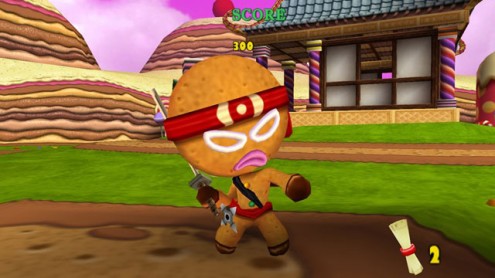Funny how some gamers get worked up over shovelware.
Have they forgotten about console lockout chips which limit the damage? Or trustworthy recommendations to help navigate the murky waters? And is there some video game Boogie Man I’m not aware of, forcing players to buy terrible games against their will?
On the surface, I can understand the concern. The Wii is home to more poorly-received games than other modern system, according to Metacritic. That can complicate the process of finding good games on Wii. But it’s not as bad as it was in the early ’80s, and there are modern tools to ensure you can avoid the stinkers.
To be clear, I don’t sympathize with game makers hoping to make a quick buck on cheap software. I despise them in fact. But I have rarely (if ever) gotten burned by said software. Here’s why:
Console control. You think the Wii is riddled with crappy games? The Atari 2600 was worse. Way worse. The majority of VCS games were so bad in the early ’80s that players wrote off video games entirely, causing the great crash of 1983.
Realizing this, Nintendo launched the NES in 1985 with lockout chips, so that the company could control, to a certain degree, the quality of games and their release frequency. Without Nintendo’s blessing, publishers couldn’t release a game. This instituted a layer of control to the approval process that hadn’t existed, one that continues today.
The system isn’t perfect. Shovelware can and does still exist. But its saturation today is nowhere near the levels experienced by Atari, thanks to closed consoles. I guess the “Official Nintendo Seal” has meaning afterall.
Critical and user reviews. Don’t listen to jaded or otherwise threatened gamers. The Wii has dozens of delightful games. You just have to separate the wheat from the chaff. To do this, it’s important to research a game before buying. Scanning dependable reviews, listening to online chatter, and talking with friends who share a similar taste in games are vital to your efforts.
Doing your homework, even if only for a few minutes, will ensure you find the games you can trust, as opposed to getting stuck with a stinker. Knowledge is power.
Freedom of choice. Bad games can’t hurt you unless you buy them. End of story. The above two items help avoid disaster. Regardless, you ultimately and freely decide what you want to play. No one is forcing you to buy anything. If a game looks suspect, or you’ve never heard of the publisher of developer listed on the back, skip it (or consult the reviews first). If it’s on sale for $10 and appeals to you, what’s there to lose?
The key is to focus your efforts on expensive games that can either leave a hole in your pocket or provide hours of fun. By staying smart, you can avoid the former while extending your gaming dollar.
Granted, occasional gamers like your uncoordinated uncle are more likely to get duped into buying a crap game, because they spend on a whim or don’t keep their ear to the grindstone like enthusiast gamers do. The price you pay for being out of the loop. But shovelware is not a problem so long as there are good games to be found. It can’t hurt you unless you let it.

